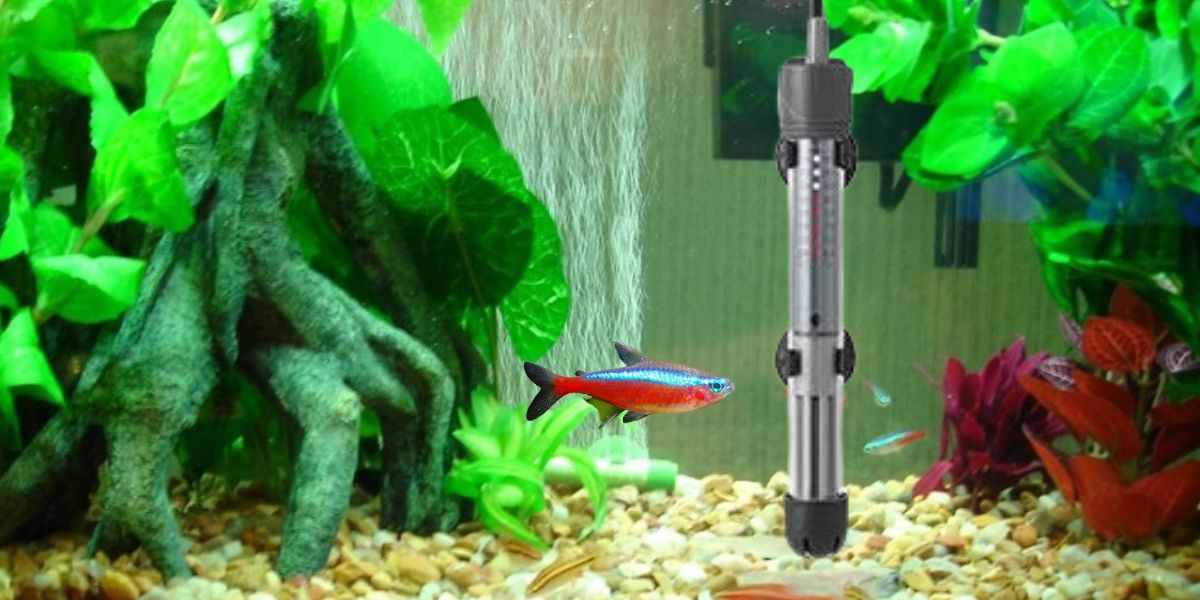If you’re an aquarium enthusiast or have a pet fish, you know how important it is to maintain the right temperature in your fish tank. Fish tank heaters are used to maintain a constant temperature in the water, but have you ever wondered, do fish tank heaters raise electric bills? In this article, we’ll explore this question and provide you with the information you need to make an informed decision.
If you’re a fish enthusiast, you probably know that maintaining the right temperature in your fish tank is crucial for the health and well-being of your fish. Fish tank heaters are used to keep the water at a constant temperature, but many people worry that using a fish tank heater will increase their electricity bill. In this article, we’ll explore whether or not fish tank heaters really do raise the electric bill.
What is a Fish Tank Heater?
A fish tank heater is an electrical device that is used to maintain a constant temperature in a fish tank. It consists of a heating element and a thermostat, which work together to keep the water at a set temperature.
How Does a Fish Tank Heater Work?
Fish tank heaters work by heating the water in the tank using a heating element. The heating element is controlled by a thermostat, which turns the heating element on or off depending on the temperature of the water. This way, the water stays at a constant temperature.
Do Fish Tank Heaters Raise Electric Bills?
Fish tank heaters do consume electricity, but the amount of electricity they consume depends on several factors, such as the size of the tank, the temperature settings, and the ambient temperature.
Factors that Affect Fish Tank Heater Raise Electric Bills
Tank Size
The larger the tank, the more electricity the heater will consume. This is because more water needs to be heated, and it takes longer to heat a larger volume of water.
Temperature Settings
The higher the temperature setting, the more electricity the heater will consume. It takes more energy to heat the water to a higher temperature.
Ambient Temperature
The ambient temperature of the room where the tank is located can also affect the electricity consumption of the heater. If the room is very cold, the heater will have to work harder to maintain the set temperature.
Insulation
The insulation of the tank can also affect the electricity consumption of the heater. If the tank is not well insulated, the heater will have to work harder to maintain the set temperature.
Types Of Heaters
The type of heater you choose can also affect electricity consumption. Some heaters are more energy-efficient than others, so it’s important to choose a heater that is appropriate for your tank size and needs.
How to Reduce Electric Bills Raised By Fish Tank Heaters
There are several things you can do to reduce the electricity consumption of your fish tank heater:
Optimize Temperature Settings
One of the easiest ways to reduce electricity consumption is to lower the temperature setting of the heater. However, it’s important to make sure the temperature is still appropriate for your fish.
Use an Insulated Tank
Using an insulated tank can help reduce electricity bills. The insulation helps maintain a stable temperature, reducing the need for heating or cooling, which in turn, saves energy and ultimately lowers the electric bill.
Choose the Right Type of Heater
Choosing the right type of heater can also help reduce electricity consumption. Some heaters are more energy-efficient than others, such as those with advanced thermostats or those that use less power.
Conclusion
So, do fish tank heaters raise the electric bill? The answer is yes, but the amount of electricity they consume depends on several factors, such as tank size, temperature settings, and insulation. However, there are ways to reduce electricity consumption, such as optimizing temperature settings, using an insulated tank, and choosing the right type of heater.
FAQs
- Can I turn off the fish tank heater at night to save electricity?
It’s not recommended to turn off the heater at night as it can cause fluctuations in temperature, which can be harmful to your fish. Instead, you can lower the temperature setting during the night to save electricity.
- How much electricity does a fish tank heater consume?
The amount of electricity a fish tank heater consumes depends on several factors, such as tank size, temperature settings, and insulation. On average, a 100-watt heater running for 8 hours a day can cost around $5 a month.
- Can I use a lower-wattage heater to save electricity?
It’s important to use a heater that is appropriate for your tank size and needs. Using a lower-wattage heater than necessary can lead to inconsistent temperature and can harm your fish.
- Can I use solar panels to power my fish tank heater?
It’s possible to use solar panels to power your fish tank heater, but it requires a larger setup and investment. It’s important to consult with a professional before attempting to use solar panels to power your aquarium equipment.
- Can a fish tank heater cause a fire?
Fish tank heaters are generally safe to use if used properly. However, it’s important to follow the manufacturer’s instructions and never leave the heater running outside of the tank. It’s also recommended to use a heater guard to prevent accidental contact with the heating element.

